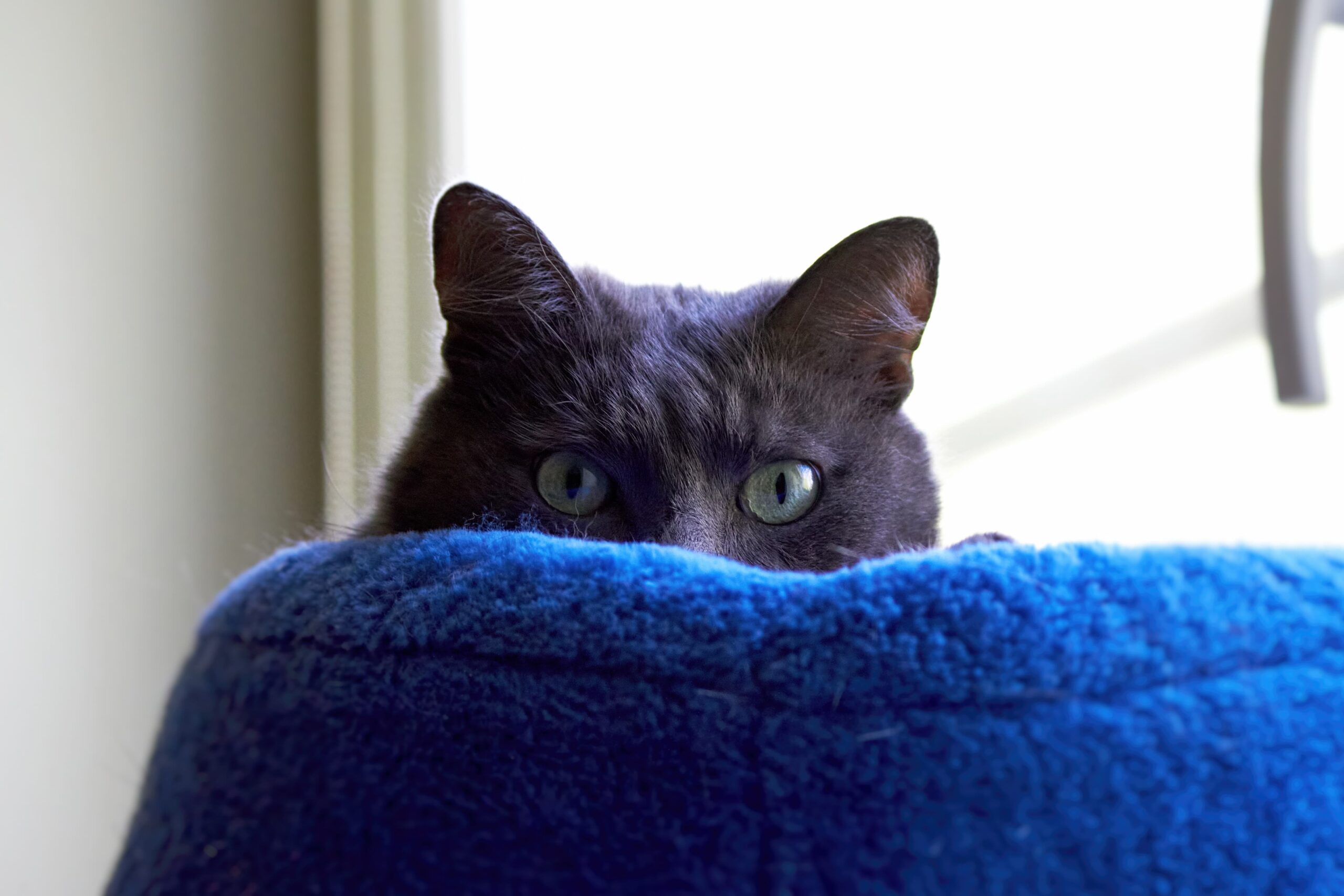Why Does My Cat… Follow Me Everywhere?
Published on July 20, 2016

Cats can be very loving and affectionate toward their owners. Some cats are physically affectionate: They like to rub on us or get on our laps when we are sitting, or lie on top of us while we are sleeping. Other cats, on the other hand, do not appear to appreciate physical attention but may just want to be near us (being close to us can be taken as a sign of preferential treatment by our kitties).
Some cats may follow us around, because they like our companionship, while others may be following us for specific reasons — or even a combination of the two. Most owners notice that their cats tend to be close in proximity when it is near feeding time. If I get up and walk around the house when it is mealtime, I generally have several cats following closely behind me. They do not want me out of their sight in case I make a break for the kitchen in order to feed them! Keep in mind that sometimes there may be an underlying medical condition for this behavior, such as diabetes or hyperthyroidism. These conditions may make a cat suddenly hungrier, so be sure to have your cat examined by a veterinarian if you notice a sharp change in your cat’s behavior.
Many times, our cats simply may be curious about what we are doing or may want access to different rooms in the house that they generally may be banned or restricted from. For example, I tend to have a messy office with lots of papers lying in piles on my desk. I close my office door, because I do not want my cats to jump on my desk and knock the papers off, but as soon as I open the door, they are at my heels, ready to inspect the “new” room. Years ago, when I lived on a 40-acre cattle farm, we used to take walks through the fields with our dogs, and my cats would follow along for our adventure (at that time, I had cats who were allowed outdoor access when I was home). Even though they could go off on their own, they always wanted to tag along with the rest of the family.
Sometimes cats also follow us around as a means of getting our attention. This is the more likely behavior when a cat follows the owner around and also starts to meow. Domestic cats are more likely to meow at humans as a means of getting attention than they are toward each other. If you do not want to reinforce this behavior, make sure you are not inadvertently rewarding your cat by giving him attention. Instead, you can distract your cat by giving him a different type of activity to engage in, such as working for food or treats via a puzzle toy or by chasing after a toy. Separation anxiety may also be a reason why a cat may suddenly follow an owner around more, especially after a return home from a trip. However, a more likely sign of true separation anxiety is inappropriate elimination during an owner’s absence or after the owner has returned home and to a normal schedule.
Personally, I like it when my cat follows me around the house and curls up close by me when I am working in the office or watching television. I see it as a sign of affection — and that my cats hold me in high regard!
More on Vetstreet:





